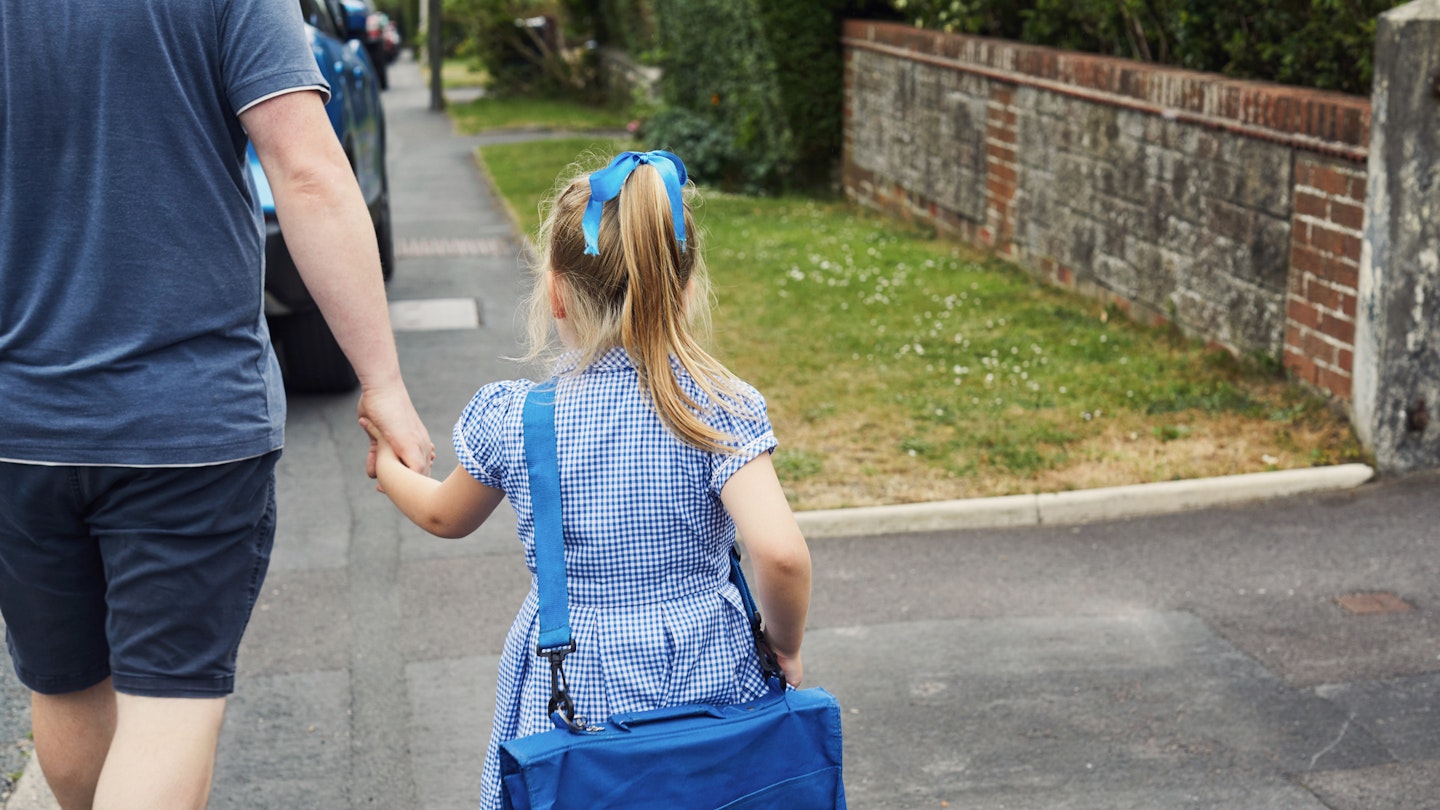Many parents and children are probably celebrating today after receiving offers they wanted for the first choice primary school they applied for. If however this isn't you, and your little one didn't get into their first choice, you're probably feeling a little panicked and worried about what the next steps are.
Although according to recent Government statistics, the large majority of children and parents are accepted for their first choice primary school, there are some who aren't so lucky. If you find yourself in the minority of parents who didn't get their first choice of school, there are some things you'll want to consider as all is not lost.
While applying for nursery might seem like a doddle compared to this, there are some steps you can take if you're not satisfied with the decision of your child's primary school place. We've put together a handy guide to the appeal process for primary schools as well as some helpful advice to reduce the stress this might be causing you and your family.
Things to consider before appealing your child's primary school place
Should I reject an offer if it's not a school we're happy with?
No! It's tempting to reject an offer from a school you don't want your child to go to, however, we don't advise you do this. It's essential that you accept the offer, even if it is from a school that isn't on your list of top choices. We're not suggesting that your child should attend this school, it just provides them with a safety net if anything goes wrong with your appeal.
What will happen if I reject an offer?
If you reject an offer then you could risk losing that place completely. If you then go through with an appeal but are unsuccessful, that safety net won't be in place and your child could end up having no choice but to go to a different school you're even less satisfied with, or they could experience a delay in starting primary school at the same time as their peers.
Will my appeal be affected if I accept an offer?
No, your appeal won't be affected if you accept another offer. While it is unlikely to not get a place at all, this is still a risk to consider. Therefore, accepting an offer is the most sensible first step, even if you want to appeal another primary school place.
What happens if you don't receive any primary school offers?
Don't worry if your child hasn't received an offer at all from any primary school. Any child from five years old has the right to have schooling provided by your local council. In the case of children being left without places, classes may be added at local schools to accommodate the discrepancy. Be prepared for this to be a stressful period of time, as it is common for councils to wait several months to observe the situation.
Reasons to appeal your child's primary school place

Read your offer letter carefully
The reason your child was refused their preference should be outlined in the decision letter. Read the letter carefully so you're clear about the reasons provided in order to work out if you have grounds for an appeal. Remember, every parent has the right to appeal, but it is an intensive process and can be very stressful for both you and your child. So ensure that your reasons for appealing are valid before considering to start the appeal process.
What is an invalid reason for appeal?
While you may strongly believe that a certain school is the best one for your child, you'll have to prove why in order for it to be a valid reason to appeal. Unfortunately, personal preference or beliefs don't come into it.
What is a valid reason for appeal?
Social or medical needs are valid reasons to appeal a decision. If your child has specific needs that the school you have been offered a place at can't meet, but the school you were refused can, then this would be considered strong grounds for an appeal. Look out also for errors made by the school or council during the admissions procedure – for example, wrongly putting you outside of the catchment area, or failing to correctly measure the distance between your home and the school.
How to get your child on a waiting list for primary schools
Don't lose hope if your child doesn't receive the school offer you were hoping for. Even the most popular schools experience significant movement on their waiting lists, with the personal circumstances of families changing all the time, so there is still a chance your child could get a place from the waiting lists.
Who should I contact to get my child on a waiting list?
Check your offer letter to find out if the waiting list for your chosen school is operated by the school or your local council. You should also be able to find this information out on your local council's website. Don't be put off if the list is long – reach out to your contact and ask to be put on the waiting list anyway, because as we've said, it's common for waiting lists to change quickly and you may find yourself buying your child their school uniform for the school you wanted all along. You can contact them via mail or phone, but be aware that phone lines are likely to be very busy on Offers Day with so many parents doing exactly the same thing as you.
What if I don't hear back once school has started?
Most children won't be likely to get a place on the first day of term, so don't be disheartened if you don't hear back once the school year has started. Waiting lists must be kept open for at least the first term. Remember that you can start your child at another primary school and still accept an offer for a place that they are on the waiting list for if one comes up.
Can I defer my child's school entry?
It is possible to defer your child's school entry to the following year if they were born anywhere from the beginning of June to the end of August. Just be aware that in this case they will miss Reception and move straight into Year 1. Keep in mind, also, that an opportunity may arise out of the blue, with another 30 places becoming available, especially in the more popular schools. This is because, as mentioned above, some councils are adding extra classes to accommodate the growing demand. A good indicator of whether this is likely to happen is to see if it happened in the previous year, as it usually only happens for one year.
How to start the primary school appeal process
You can find information on how to appeal if you're not happy with your school offer in the decision letter. It will also tell you the deadline – You should have at least 20 school days from when the letter was sent out, as well as what documentation you'll need to provide, and where to send your appeal.
How to assemble your evidence and documentation
Firstly, clearly explain in writing why you think your child should attend the preferred school. Include what the negative impact on them will be if they are refused. You'll need to include any supporting information, including documentation that verifies your claims – for example, maps that clearly show distances between the school and your house if relevant, and evidence of transport costs or timetables. You can reach out to medical or social-care professionals for medical reports too.
The more independent evidence you can compile to support your case the better. For more support to help with your appeal you may choose to work with a solicitor, or alternatively, a member of the school's appeals organisation. Keep in mind that these may incur costs, so ensure you are aware of these upfront.
With this being quite a lengthy process, you'll be pleased to learn there is a lot of support out there for parents in your position including Coram Children's Legal Centre who offer in-depth legal advice on education matters. There's also plenty of help on the Government guidance on school appeals.
After the appeal deadline your case must be heard within 40 school days, and you'll be told when and where to go at least 10 school days' prior to the hearing taking place.
What to expect at the appeal hearing
The hearing may take place in person, remotely via video call, or a mix of both, and will be heard by an independent panel of at least three people who will follow the school admissions appeal code. It can be a bit intimidating so feel free to bring a friend, family member, or anyone in an official capacity along for support. The hearing will start by outlining the case for refusing to admit your child to the school in question. Then you'll be given the opportunity to present your reasons as to why they should.
When will I find out the verdict?
After the hearing, we're sure you'll be on edge. Thankfully you won't have to wait too long for a decision, with the results arriving in writing within five school days. Your appeal will be successful if the panel sees that the school didn't follow the rules for admissions or if not going to your chosen school would really harm your child more than what the school says. The decision is final, and only a court can change it.
What can I do if I lose the appeal?
Even if you lose the appeal you can still put your child's name on the waiting list for that school and remain on it as long as needed. Places may still come available during spring and autumn, and even if an opening doesn't arise before the start of the school year, there is still a chance that you could accept an offer later on.
Appealing a decision can feel daunting, and with so much information to get your head around you might be feeling confused as to what to do first if you want to appeal a rejection.
How to deal with the stress and disappointment
Our children pick up easily on stress signals from parents, so it's important to try and remain calm around them throughout the process of appealing. Your child may also be feeling sad about not getting into a primary school that their friends or neighbours have been accepted to as well, and they may be feeling anxious.
Keeping your own negative views about a school that has offered your child a place to yourself is also a good idea so that you won't influence how your child feels if they do end up having to go there in the case that your appeal isn't successful. Keeping an open mind and making an effort to get to know the school by talking to other parents and kids that go there can help both you and your child to feel more reassured no matter what happens.
Proud aunt to her teen niece, Zara Mohammed is a Digital Writer for Mother&Baby. She has 10 years freelance writing experience creating lifestyle content for various platforms, including pregnancy, women’s health, parenting, child development and child mental health, plus lots of fun seasonal family articles and celebrity news.
